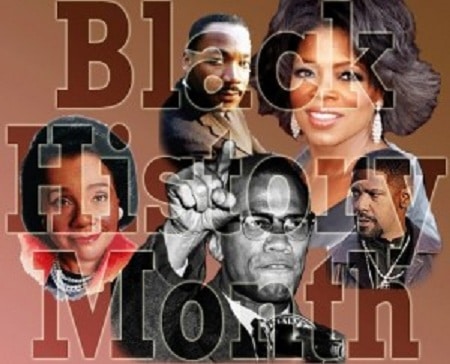Before this year, I didn’t like celebrating Black History Month. While I was grateful for the contributions of the Black people who came before me, I didn’t like celebrating Black History Month because I felt like Black history didn’t matter today.
This dislike for Black History Month didn’t come overnight. It started in high school, where I kept hearing and seeing the same old faces being taught. In high school, we had Black History Month assemblies in the gym each year. At first, these were entertaining. By my junior year, I had gotten bored by them. During my senior year, I didn’t go at all.
Another reason I came to dislike Black History Month is because I didn’t see the past contributions of Black people being reflected anywhere in the mainstream media. In fall 2010, I was doing research on the history of rock music for a college paper and was surprised to discover that Black musicians like Chuck Berry and Little Richard had pioneered rock ‘n’ roll.
When I discovered this, I had mixed emotions. On one hand, I was excited to hear Chuck Berry’s music and see old live performances clips on YouTube. On the other hand, I was upset that I hadn’t learned about Black people inventing rock ‘n’ roll in grade school. I was also disappointed because I thought that there weren’t any Black rock musicians today.
Last year, I realized that there were current Black musicians in rock as well as every other genre besides hip-hop, pop, and R&B. Using the site Afropunk to do further research, I discovered hundreds of bands and musicians like Skunk Anansie, Gary Clark Jr., Marian Mereba and more. All these musicians were either independent musicians or not widely known.
At the same time, I was digging deeper into the past and discovering other musicians not in any school textbook. Some examples included Sister Rosetta Tharpe, Nina Simone and Betty Davis. Soon I was able to make connections about who influenced who today and gain an immense appreciation for Black musicians in almost every genre.
In addition to the music, I also discovered Black speculative fiction, a literary genre that comprises Black authors of fantasy, sci-fi, and horror. According to an I09 article, Black speculative fiction has been around since the 19th century. Some current Black speculative fiction authors I have read include Balogun Ojetade, Tananarive Due and N.K. Jemisin.
Read more by Latonya Pennington at Black Girl Nerds



